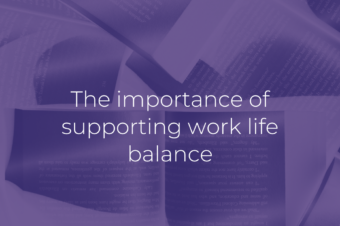
When an organisation is hiring, you need to find the best possible people. Inevitably, at some point, the organisation will also need to fire people; agile organisations get the balance right.
I believe that employers have wider responsibility to their employees, to ensure that they can move to good jobs when they are made redundant. The ‘And Beyond’ leader understands that as an employer you serve the community in which you operate, and need to meet obligations and do the right thing in giving support to employees who are redundant. This is where outplacement comes in.
A social conscience, is not just a ‘nice to have’ option, it has a beneficial impact on the business. Leaders who engage with what matters most to their people, who are focused on creating social connections with their teams and taking a holistic approach and constructive role in the society in which the business operates, will be at a distinct advantage in the coming years.
What would you want?
Good outplacement provision costs money, but it will be money well spent. If you choose a cheaper, bot-driven, automated, virtual group programme, you’ll save a little money and lose a lot of goodwill.
Imagine the shoe on the other foot. What sort of outplacement support would you hope for if you had to seek a new role? Do you want off-the-shelf, low-cost, online support? Or would you prefer the support of a dedicated career coach who will provide a personal and customised service to help you achieve an optimal outcome that will meet your goals and aspirations?
Obvious isn’t it? Key to helping people come to terms with job loss and having to find a new job/career is the offer of one-to-one time with a career coach, backed by a support platform that makes the transition as painless as possible. Everyone is different and needs customised support – there is no substitute for that.
Cheapest is unlikely to be best
If outplacement support is cheap as chips, it won’t achieve what your redundant employees want it to achieve. It won’t help them find good, appropriate roles quickly, it won’t help them make difficult choices appropriately, and it won’t make them feel that you valued their contribution enough to invest in their future wellbeing. Failure to support ex-employees will have an adverse effect on the reputation of your organisation:
· We’re in a full employment recession and being able to source and attract good people is important; your employer brand matters.
· If you damage your reputation in terms of the employee experience, it will be harder to recruit the brightest and best.
· If ex-employees find it hard to get new roles because you failed to support them, it will make them, and remaining employees, angry and demotivated.
· The organisation needs to be seen as a good place to work, a place that values, develops and supports employees not just for productivity now, but for employability in the future.
You may think you don’t need to worry about what ex-employees are saying about the organisation. Think again. Those managers, professionals, executives, knowledge workers that you let go are out there, networking and interviewing. The likelihood is that they are seeking roles with your competitors and, perhaps your customers; they will also be talking to headhunters, suppliers, clients – what do you want them to be saying about the organisation they just left?
It is more than likely that some ex-employees may be potential future customers. The executive you let go today may be tomorrow’s decision-maker in a customer or client organisation.
Modern career transition
The reduction in one to one outplacement, characterised by a lack of a dedicated career coach is a real problem. There’s nothing wrong with using technology to supplement and support coaching, research and guidance outplacement efforts but it should enable a broader and more comprehensive service rather than a cheaper product.
A platform that affords booking and scheduling services for coaching, which gives access to resources and training and which eases the administrative burden for user is great. There is a place to use technology to aid learning, but actual human contact and expertise remains crucial.
You can’t share your innermost fears with a computer; a chatbot won’t understand why you made the career choices you did, and the career path you want for the future. Good outplacement support has a demonstrable positive impact on the organisation’s reputation among remaining employees, the wider community and the job market in general.
Employer brand
We work in an environment of near constant change where the attraction, retention and ongoing engagement of experienced talent is critical to organisational success. Offering outplacement conveys a strong message showing the intention to treat former employees with respect.
Organisations need a more person-centred and future focussed approach to career paths, employee engagement and workforce deployment. Aligning employee motivation and aspiration with organisational needs affords improved workforce agility and adaptability in response to a complex and evolving marketplace. In addition, appreciating the aspirations and values of employee’s means management can position the individual with tangible, practical support and advice for a career move if redundancy becomes an issue.
Think about corporate reputation and building a brand that cares for people. The key test of outplacement is does the ex-employee speak highly of their ex-employer?







